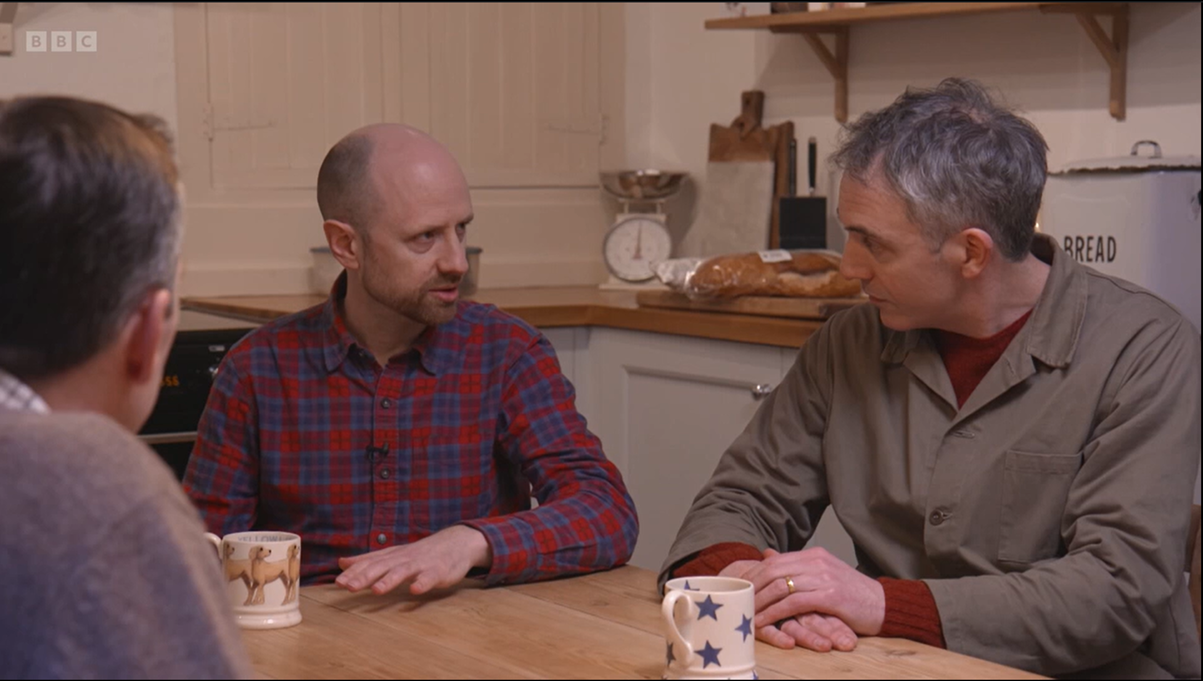One Minute on The One Show
On Tuesday night I was on BBC's The One Show in a piece about the wave of tenant farmers facing eviction in order to build renewable energy installations on the land.
Although I was only on screen for about a minute, it was the result of well over an hour of filmed discussion with the BBC's Joe Crowley and the tenant farmer couple, Rob and Emma Sturdy, at their farm in North Yorkshire.
Joe, Rob and Emma were delightful people to meet and talk with and the conversation was thoughtful, respectful and complex. The One Show runs a tight format and so I did not expect most of our discussion to make the final cut.
A key point we all agreed on was that a fair and robust planning system is needed if we are to avoid higher quality arable land being repurposed for other use. This would ensure that Rob, Emma and other tenant farmers do not fall victim to the fact that all the major political parties and our government are determined to reduce the UK's greenhouse gas emissions and, as part of achieving that, support the building of more renewable energy generation infrastructure across the country.
Taking the case of Rob and Emma’s farm, I understand that nearby there is more than one other land owner with poorer quality farming land who wants to have renewable energy generation built there instead. This situation where highest quality arable land like Rob and Emma’s risks being repurposed whilst other, more appropriate nearby land seems to not be prioritised instead for change of use indicates that the current planning system and land use policy are not operating effectively.
Rob and Emma’s story is like a window to the future. If we are to switch the powering of our vehicles and heating of our buildings from fossil fuels to renewable energy, then a very large amount of renewable energy generation is likely to be needed. Much of that generation infrastructure will need to be built on the land.
We are calling for renewables that are built to be community owned and run, so that the local village, town or area benefits economically and socially. There are examples of this across the UK now, but they are very few in number because the rules running the energy system are against them. That is what we are working to change and it can go hand-in-hand with maintaining more productive land to grow food. The potential is remarkable and inspiring.
Sign up to support our campaign to empower local-led renewable energy here: https://powerforpeople.org.uk/sign-up
Steve Shaw, Director

